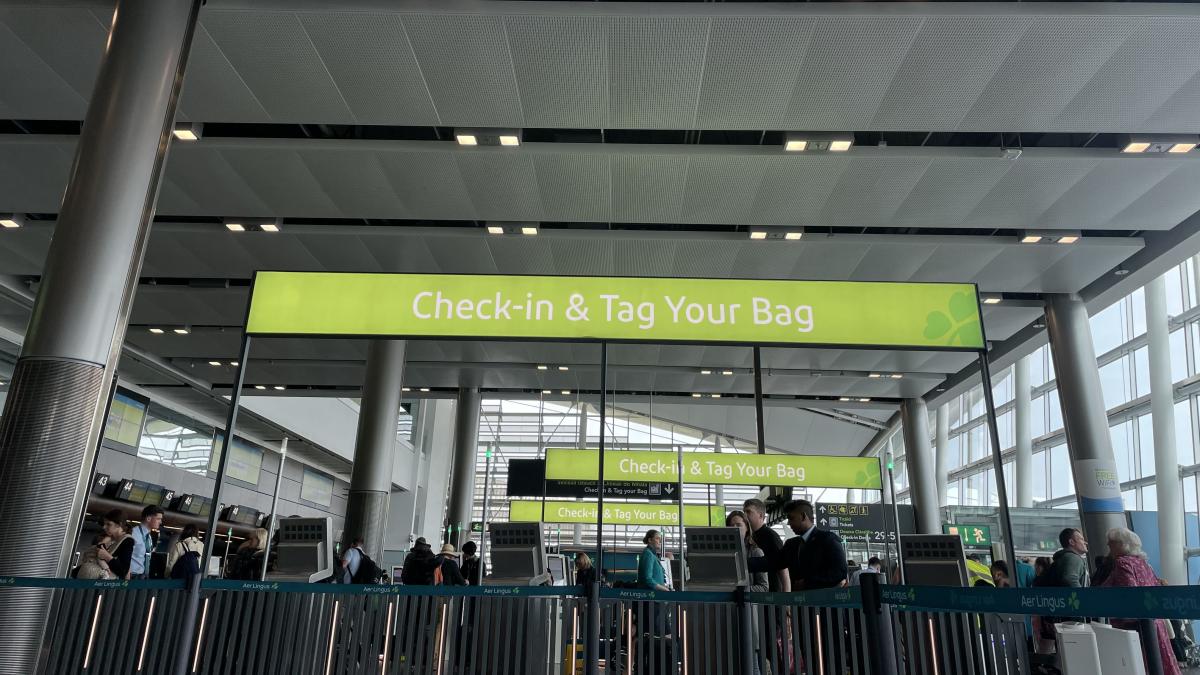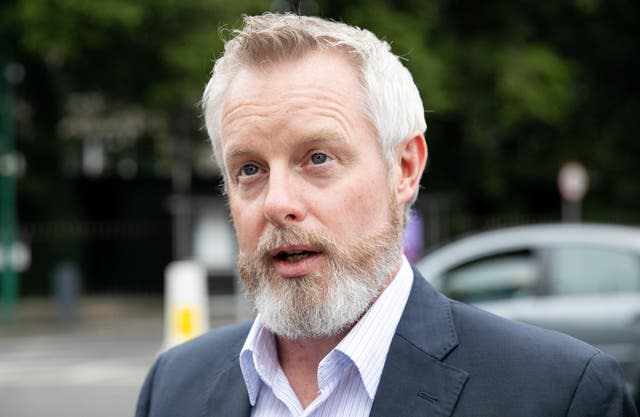Aer Lingus passengers express concern over industrial action

The first day of industrial action by Aer Lingus pilots began on Wednesday without major disruption, while an Irish minister called for a “cool head” to be kept in the bitter dispute.
Passengers arriving at Dublin Airport hoped that their flight would not be cancelled at the last minute and described their nervousness over the last few days.
Due to pilots’ strikes over salary cuts, Aer Lingus has already cancelled 270 flights for the coming days.
A message to our customers:
The Irish Air Line Pilots’ Association (IALPA) has announced a strike from 5am to 1pm on 29 June 2024, in addition to the existing work-to-rule measures from 26 June. This will cause significant disruption to our customers. (1/4) pic.twitter.com/T1LABKBMFg
— AerLingus (@AerLingus) 21 June 2024
The indefinite, rule-based shift began at midnight, and pilots refused to work overtime, accept changes to their schedules, or respond to management requests outside of working hours.
An eight-hour strike is also planned for Saturday.
A solution to the bitter dispute seemed a long way off after the Irish Labour Court informed both sides on Tuesday that it would not intervene at this time.
But on Wednesday afternoon, the pilots’ group Ialpa said it had accepted an invitation to talks with Aer Lingus as the go-slow strike continued.
They are expected to meet on Thursday at 9.30 a.m.
The travel plans of tens of thousands of passengers were affected and the airline worked to offer refunds or alternative flights to those whose trips were cancelled.
In Terminal 2 of Dublin Airport, Aer Lingus passengers whose flights were not cancelled were in good spirits on Wednesday morning.
Audrey, from Galway, who was travelling to Bilbao with her family, said she received an email on Saturday saying her flight would go ahead, which reassured her.
“But between last Wednesday and Saturday there was a lot of uncertainty about whether we could go,” she said.
“It’s our only family holiday of the year and of course we wanted it to go ahead because otherwise there would be a lot of excitement in the house. So we’re glad ours is going ahead and feel sorry for everyone else who can’t come today.”
She said they would fly back with Aer Lingus and would have a few extra days off before going back to work.
“We just want to try it out and see how it goes. We have looked into alternative flights and even ferries in case it didn’t work out. But once we are there, we are happy,” she said.
“The thought of not arriving is the problem, but once you are there, you are relaxed.”
When asked whether she supported the industrial action, she said she believed there was a good offer on the table.
“I guess I’m probably not as incredibly angry as someone whose flight was cancelled, but I think it’s difficult to have sympathy for the pilots, to be honest, because they’re well paid anyway,” she said.
Diarmuid, who is from Dublin and is travelling to France, said the pilots “had to do it at some point”.
“I can understand the justification for this. If there is a full-scale strike, we will be in big trouble, but this service to rule has allowed some passenger flow. I would like to see more transparency from the company about the level of profits,” he said.
Catherine, who is from Dublin but lives in Minnesota in the US, said her flight was not affected but she was “anxious” ahead of the flight.
“I think it’s bad because it affects so many families who go on holiday, but they do it because it’s the climax of the negotiations. I really feel sorry for the families,” she said.
“When you make record profits, you should give something back to people whose profits have plummeted during the Covid pandemic. But you can’t be greedy either.”
Parents traveling abroad with their children express concerns about having to break bad news to their children who are looking forward to their vacation.
Passengers appeared satisfied with their onward journey to their destination and willing to extend their stay if necessary.
A woman flying to the US said she was anxious in the run-up to Wednesday and had adopted a “wait and see” attitude.
When asked if she would fly back with Aer Lingus, she said “hopefully”.
“I didn’t believe they would solve the problem because, honestly, I can’t imagine them getting what they want. I feel sorry for the cabin crew and the ground staff,” she said.
There has been a heated exchange of words in recent days between the airline and the Irish Air Line Pilots’ Association (Ialpa), a branch of the Forsa union, with both sides accusing each other of a lack of involvement.
The pilots are demanding a salary increase of 24%, which they say corresponds to inflation since the last salary increase in 2019.
Aer Lingus has stated that it is willing to offer salary increases of 12.5 percent or more if “improvements in productivity and flexibility” are discussed.
Both sides agreed to hold separate meetings at the Labour Court in Dublin on Tuesday to discuss the deadlock in the industrial dispute.
After the meeting, Aer Lingus expressed its “disappointment” at the court’s assessment that it could not currently help bridge the gap between the sides.
“Aer Lingus has made it clear that the company remains available for discussions, both directly and through government industrial relations structures,” it said.
Ialpa President Mark Tighe made it clear that the action would continue “until there is a solution.”


“The pilots in the union do not want to get into this situation,” Mark Tighe told RTE Radio on Wednesday.
“We are in the middle of summer, every day (of industrial action) will have a significant impact.
“What you are seeing here is the direct result of management’s actions and its refusal to acknowledge that it should have been addressing inflation at the same time.”
Political pressure on the Irish government to help resolve the conflict is increasing. Irish Prime Minister Simon Harris called on both sides to “do everything they can” to find a solution.
At Leaders’ Question Time, Sinn Féin’s Louise O’Reilly accused the government of a laissez-faire approach and said people expected leadership and “intervention at a high level”.
Social Minister Heather Humphreys said she fully understood “how frustrating and upsetting” it was for people whose travel plans were affected.
The Labour Court remains available to the parties, she said, and the situation will be fully reviewed on July 1. In the meantime, both sides have been asked not to allow the dispute to escalate further.
Ms Humphreys said that “both parties need to make intensive efforts” and that they need to “return to the negotiating table”.
“I think what we need here is to keep a cool head, leave our egos outside and get back into the negotiating room – I say that to both parties,” Ms. Humphreys told the chamber.
“If everyone sticks to their position, we will never find a solution.
“I tell them: start talking, this will be solved. There have to be compromises, they have to talk.”
“Sit back down at the negotiating table and solve this problem. There is a solution, there is always a solution,” she said.



